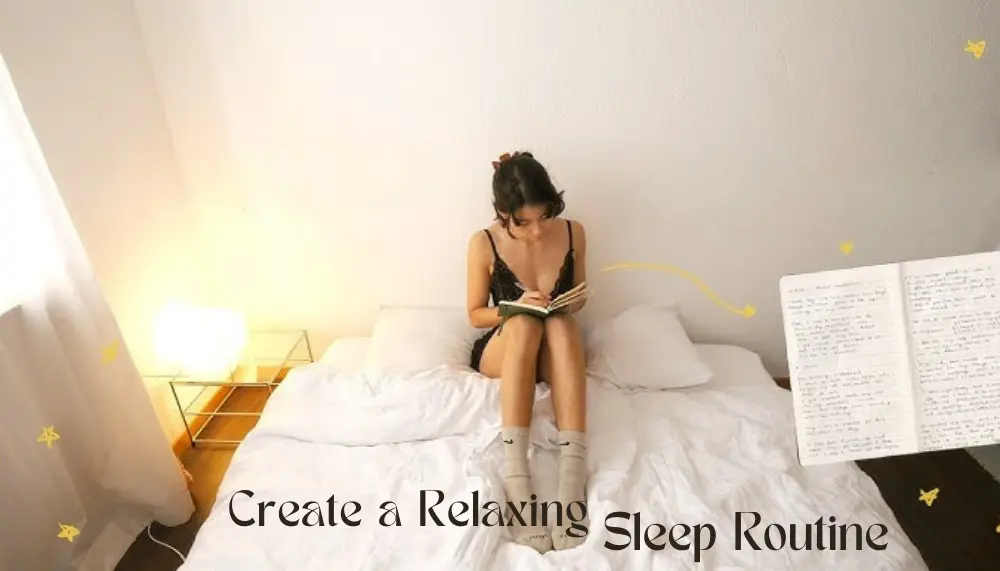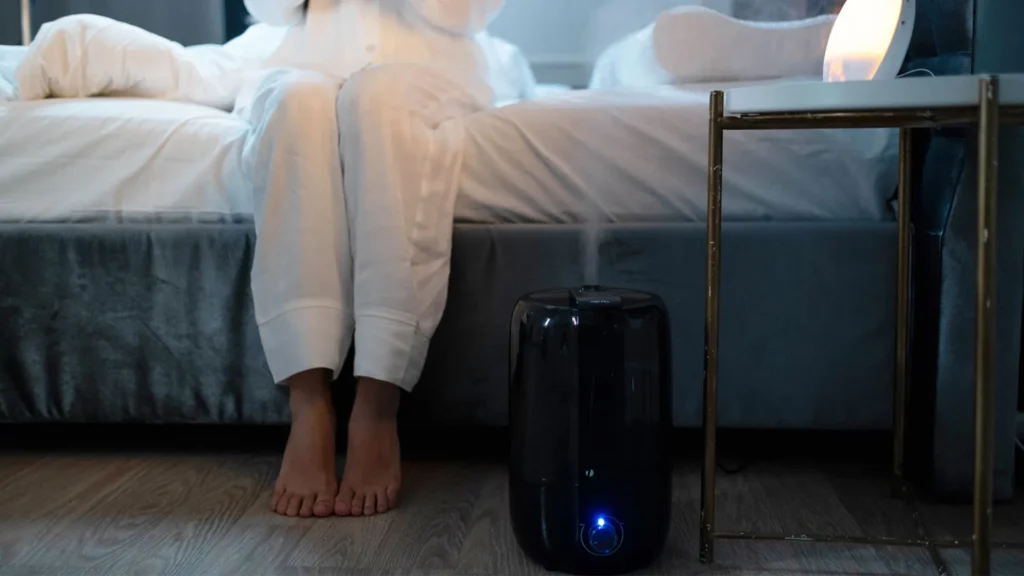
Introduction: The Struggle of Winter Sleep
As winter rolls in, many people face a challenge that’s often overlooked: the difficulty of getting restful sleep during the colder months. Whether it’s the plummeting temperatures, the shorter days, or the change in routine, winter can throw off your sleep schedule and make it harder to get those crucial hours of rest. But don’t worry—there are plenty of ways to improve sleep during winter and ensure that you wake up feeling refreshed and energized. In this article we’ll discuss on How to Improve your Sleep Quality in winter.
6 Ways to improve your sleep quality in winter
1. Optimize Your Bedroom Temperature

One of the most crucial factors in achieving quality sleep is the temperature of your bedroom. While you may think a cold room is uncomfortable, research shows that a cooler environment actually promotes better sleep. The ideal sleep temperature is between 60-67°F (15-20°C).
- Consider using a smart thermostat like the Amazon Echo Thermostat to keep your room at the ideal temperature for restful sleep.
Why it works: Your body naturally cools down to enter the deeper stages of sleep, and a cooler room supports this process, helping you fall asleep faster and enjoy more restful sleep.
You May Also read: How to Create a Cozy Bedroom for Cold Nights
2. Layer Up with the Right Bedding

Credit: www.bedbathntable.com
During winter, the type of bedding you use can make all the difference. If your bed is too cold or too warm, it can disrupt your sleep, leaving you tossing and turning all night.
- Try a high-quality down comforter like this Cozy Down Duvet or a popular weighted blanket such as the Gravity Blanket for extra comfort.
Why it works: Layering your bedding with materials designed to trap warmth without causing overheating can provide the perfect balance for a cozy night’s rest.
Invest in a high-quality duvet or comforter made of down or down-alternative material for warmth. Use flannel sheets or thermal blankets that keep you warm without suffocating your skin. Consider a weighted blanket to promote a sense of calm, which can help you fall asleep faster.
3. Create a Relaxing Sleep Routine

The winter months can often bring stress, anxiety, or restlessness, making it difficult to unwind. Developing a calming bedtime routine can help signal to your body that it’s time to sleep, even when the weather outside is less than inviting.
A consistent routine helps regulate your circadian rhythm, which is essential for quality sleep. Certain activities can help lower stress hormones and trigger your body’s relaxation response.
Try light stretching, reading, or a warm bath before bed to relax your muscles and calm your mind. Avoid caffeine and heavy meals at least 3-4 hours before bedtime.
- Relax with this Aromatherapy Diffuser Set paired with calming lavender essential oil to set the mood for sleep.
Limit screen time by turning off devices at least 30 minutes before sleep, as the blue light from screens can interfere with melatonin production.
4. Embrace the Power of Warm Drinks

Credit: www.mudwtr.com
A warm drink before bed can be a cozy and soothing way to prepare your body for sleep. While alcohol and caffeine may seem tempting, they disrupt sleep. Instead, opt for caffeine-free, relaxing beverages.
Warm drinks, especially those with calming properties, can help raise your body temperature and signal that it’s time to wind down.
Drink herbal teas like chamomile, valerian root, or peppermint, which are known for their relaxing effects. Hot milk, with or without honey, can be a natural sleep aid due to its tryptophan content, which helps the body produce serotonin.
- Savor a cup of chamomile tea with the Traditional Medicinals Organic Chamomile Tea for a natural way to relax before bed
Keep the drink warm but not too hot to avoid disrupting your sleep once you’re tucked in.
5. Maximize Daylight Exposure

Credit: www.apge.com
In winter, it’s easy to spend most of the day inside, especially with the shorter daylight hours. However, exposure to natural light during the day can help regulate your sleep-wake cycle and improve sleep quality at night.
Daylight exposure helps boost serotonin production during the day and triggers the body’s natural production of melatonin at night.
Get outside for at least 30 minutes each day, even if it’s cloudy or chilly. A walk in the sunlight can significantly boost your mood and energy levels.
If you have limited access to daylight, consider using a light therapy box to mimic natural sunlight and help regulate your internal clock.
- A light therapy box like the HappyLight by Verilux can mimic natural sunlight and improve your sleep-wake cycle.
Try to spend time in bright, well-lit areas during the day, especially during the morning hours.
6. Invest in Sleep-Friendly Humidity Control

Credit: www.sleepopolis.com
The dry winter air can lead to dry skin, dry eyes, and even a scratchy throat, all of which can make it harder to fall asleep and stay asleep. Adding moisture to your environment can help you breathe easier and sleep better.
Maintaining optimal humidity levels in your room can prevent discomfort and ensure that your nasal passages stay clear, promoting better sleep.
Use a humidifier to maintain humidity levels between 40-60% in your bedroom.
Consider adding a few indoor plants that naturally increase humidity and improve air quality.
- Maintain optimal humidity with a Levoit Cool Mist Humidifier and keep your skin moisturized using the CeraVe Night Cream.
Keep your skin hydrated with a good moisturizer before bed to prevent dryness caused by cold air.
Conclusion: Restful Winter Sleep Awaits
By implementing these tips, you can improve your sleep quality and wake up feeling refreshed and energized. Remember, consistency is key. Stick to your sleep routine, and you’ll soon notice a significant improvement in your sleep quality.















